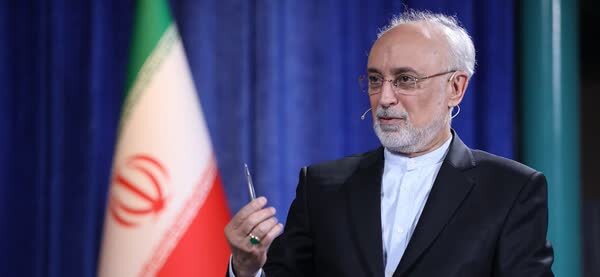As Iran braces for election, politician says future is in hands of people

TEHRAN – A prominent politician emphasizes the rationality of engaging in elections for the country's well-being.
In an interview with Fars News on Sunday, Ali Akbar Salehi stressed the importance of active participation in the impending parliamentary elections, stating that it is not merely a “recommendation but a rational” decision.
Underscoring the crucial role of unity in determining the country's fate, he urged citizens to join hands and actively take part in the electoral process.
Salehi highlighted the risk of division, stating, "The Quran advises that when division occurs, and we separate from each other, it creates a weakness that can break us all."
Emphasizing the power of collective action, Salehi, who was foreign minister from 2011 to 2013, noted that standing together mitigates potential differences, including political disagreements.
Addressing concerns about potential division, Salehi urged the public to resist individualism, emphasizing the strength that comes from unity. He argued that boycotting elections is counterproductive and urged citizens to demonstrate both internally and globally that they are united in determining their destiny.
Salehi acknowledged the country's challenges, including economic issues, but cautioned against assuming perfection elsewhere. Salehi encouraged citizens to choose representatives aligned with their preferences and perceived as effective in addressing national challenges.
The former chief of the Atomic Energy Organization concluded by urging collective action, emphasizing the role of elections in preserving national sovereignty and asserting rights on the international stage.
Iranians will go to the ballots on March 1 to decide who they want to occupy the seats of the Parliament. The Iranian Parliament, known as the Islamic Consultative Assembly or Majlis, plays a central role in the governance structure, responsible for passing laws, approving budgets, and overseeing government policies. Almost 15,000 candidates have been approved to compete in the parliamentary elections that are held every four years. In order to secure a position as a lawmaker for a four-year term, a victorious candidate is required to obtain a minimum of 20 percent of the votes cast within their respective constituency.
Concurrently with the elections of the Islamic Consultative Majlis, the Assembly of Experts election will also be held on the same date, where 144 candidates are vying for 88 seats at the body, which elects and oversees the activities of the Leader of the Islamic Revolution and is in a position of authority to either appoint or dismiss the Leader.
Mohammadreza Shahcheraghi, the deputy minister of interior for political affairs and the head of election headquarters, said around 59,000 polling stations will be opened on the day of elections and nearly 800,000 people will be involved in the process of conducting and overseeing the elections.
Leave a Comment